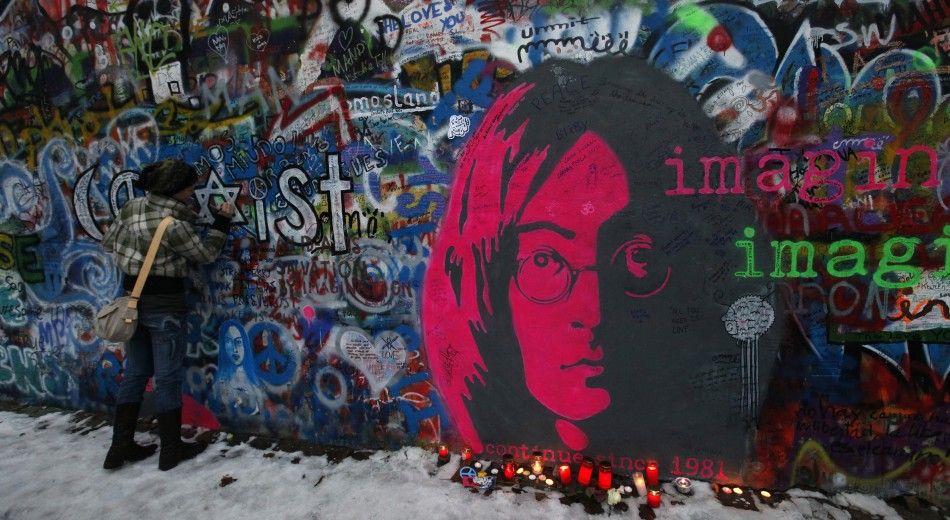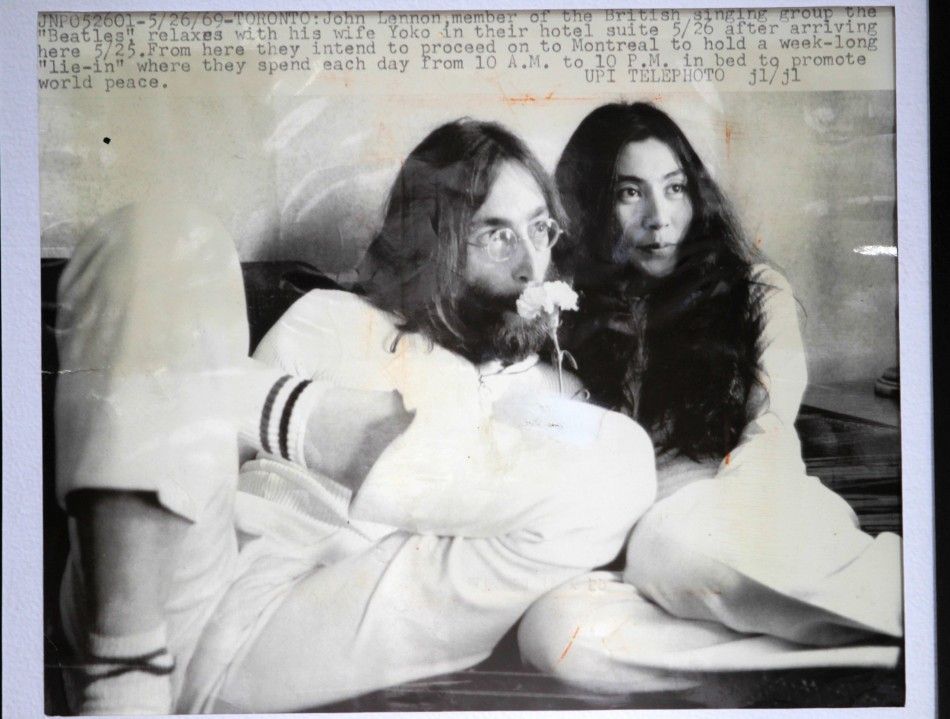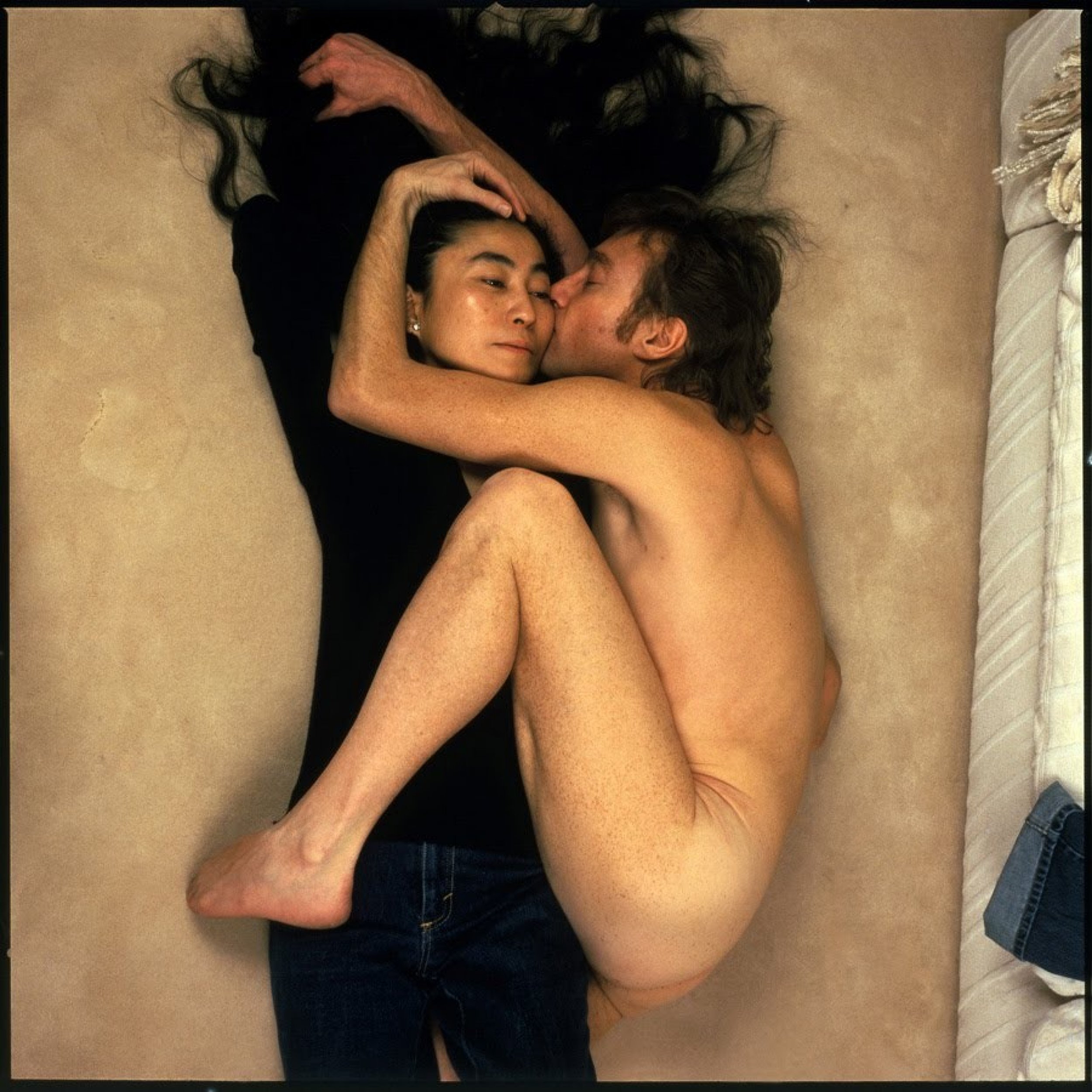John Lennon's Birthday: A Look at the Lennon Legacy [PHOTOS & VIDEOS]
John Lennon would have turned 71 on his birthday today, Oct. 9. Best known as one of the founders of The Beatles, he is recognized as one of the greatest musicians and songwriters of the 20th century.
Beyond his music, however, Lennon has even eclipsed Paul McCartney, the most famous surviving Beatle, as an icon. A BBC poll in 2002 ranked Lennon number eight in a poll of the 100 Greatest Britons; McCartney and George Harrison were not even in the top twenty, and Ringo Starr was not on the list.
The reason? Thanks in part to the efforts of his widow, Yoko Ono, the artist is remembered not only as a musician but also, and on the same level, as a philanthropist, activist and idealist. Songs like Imagine, Give Peace a Chance and Working Class Hero have joined Whatever Gets You Through the Night, Lennon's only no. 1 single as a solo artist during his lifetime, to create the soundtrack to Lennon's legacy, one of unceasing experimentation, unabashed political activism, raw honesty and uncompromising talent.
Many who have become a part of that legacy, however, do not remember, or perhaps were not born soon enough to realize, the extraordinary life that created, fostered and shaped that legacy. Here, enjoy a scrapbook of sorts, a collection of quotes, photos and videos chronicling Lennon's most famous, most beautiful and most controversial moments:
You've Got to Hide Your Love Away. Fellow Beatle Paul McCartney, in a 1980 interview, remembered Lennon as the leader of the group. He was like our own little Elvis ... We all looked up to John. He was the quickest wit and the smartest.
In 1965, the Beatles ignited a storm of controversy when Lennon, in an interview with British newspaper The Evening Standard, compared The Beatles to Jesus, with one clear winner. “Christianity will go, he said. It will vanish and shrink ... I don't know what will go first, rock 'n' roll or Christianity. We're more popular than Jesus now. Jesus was all right, but his disciples were thick and ordinary. It's them twisting it that ruins it for me.”
The comment went virtually unnoticed in England, but it caused great offense in the U.S. when quoted by a teen magazine five months later. Beatles records were tossed into mass burning heaps, and the Ku Klux Klan staged rallies against them. The group’s alleged response? “They’ve got to buy ‘em first before they burn ‘em.”
As The Beatles began to break apart in 1969, Lennon and his new wife, Yoko Ono, spent their honeymoon holding two week-long Bed-Ins for Peace in Amsterdam and Montreal. It was their way of protesting war and promoting contemplation and love. The press largely ridiculed the effort, and the lyrics for The Ballad of John and Yoko express Lennon's frustration. When asked afterward if the event had been successful, however, Lennon insisted that the failure of the press to take the couple seriously was part of what he and Ono wanted. It's part of our policy not to be taken seriously, he said. Our opposition, whoever they may be, in all manifest forms, don't know how to handle humor. And we are humorous.
As Lennon began exploring a solo career, his involvement with Ono grew deeper, and his continued frustration with his status as a pop icon drove him to become heavily involved in political activism. James Hanratty in 1969, the Chicago Seven in the early 1970s, the Clydeside UCS worker's work-in and Irish Republican Army in 1972 all benefited from the media attention Lennon brought to them. The same bastards are in control, Lennon said of the various movements' opponents at the time. The same people are running everything, it's the whole bullshit bourgeois scene.” His activism almost got him deported from America by the Nixon administration, and his court fight against his threatened deportation lasted several years.
In 1969, John Sinclair, a poet and head of the militantly anti-racist White Panther Party, was arrested for marijuana possession and sentenced to ten years in prison. Lennon and Ono helped stage a protest and benefit concert for Sinclair, including speakers Allen Ginsberg and Abbie Hoffman and musicians Stevie Wonder and Phil Ochs. The day before the John Sinclair Freedom Rally, Sinclair's sentence was drastically reduced. Three days after it, the Michigan State Supreme Court ruled that the state's marijuana statutes were unconstitutional, and he was released on bail.
In 1970, Lennon released his first post-Beatles solo album, John Lennon/Plastic Ono Band. It was met with great critical and commercial success. One of the songs, however, ignited controversy: Working Class Hero was banned from some radio stations for profanity and inappropriate material.
Instant Karma! is one of the fastest-released songs in pop music history. It was recorded at London's Abbey Road Studios the same day it was written, and it arrived in stores only ten days later. It is one of three songs by Lennon, along with Imagine and Give Peace a Chance, in the Rock and Roll Hall of Fame.



© Copyright IBTimes 2025. All rights reserved.





















